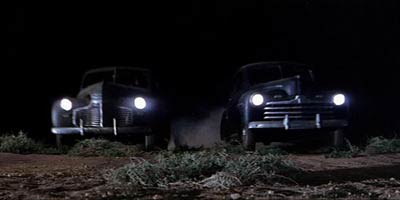Tolkien found inspiration for The Silmarillion in the Bible, mythology, legend and lore, but also in the Dialogues of Plato, where Socrates discusses the soul at great length, comparing it to harmony, which to this Tolkien reader brings to mind the harmony created by Eru (the One God in Tolkien's theology) and his Ainur (archangels) before the making of the world. In The Silmarillion, Tolkien writes of this harmony forming both Middle Earth and foretelling the deeds thereupon, which is why prophecies are always fulfilled. The discordant notes introduced by the lone dissenting Ainur, Melkor (Tolkien's spin on Satan) do not succeed in destroying the harmony, but only alter the musical composition to create even more powerful music in the end.
In contrast to the silence of the Bible, Tolkien tackles head-on the one really essential question for a monotheist, "Why is there evil in the world?" The reason is art and beauty. That may not be a satisfying answer to most human beings, but why should a god view the world in the same way as a human being? Eru merely wants to create great music, perhaps due to pride, vanity or a delight in beauty. Tolkien explains evil as the black that offers contrast and greater poignancy to the white. The great god, Eru, is an artist first and a moralist second. Eru is concerned with creating great music, great art. He values beauty above righteousness or possibly equates the two. In Tolkien's works, the beautiful are good, and the evil are ugly, with few exceptions, one of them being Sauron when he lived among men. Eru is forever concerned about the endurance of his creation, Middle Earth, and its beauty and power. He is not as concerned with the fate of individuals or even of nations, although a handful of heroes have managed to catch his attention, or rather the attention of his lieutenants, on very rare occasions.
When reading the Old Testament, "Yahweh" seems to me a neglectful, vengeful father-figure, who allows temptations to arise and does nothing to reduce their influence. Nevertheless, he expects rather arbitrary rules to be obeyed precisely at all times, and when they aren't, exacts group punishment on all, the good, the bad and the innocent alike, and his punishments are cruel, like a tyrant's. In "The Silmarillion," Eru has far fewer rules, and no expectation of worship or devotion, not being a vain god. Therefore, I like Eru better than the classical god. However, with both Eru and Yahweh, one gets the sense of mankind being mere playthings, toys from which the greater being derives amusement or a sense of purpose. Men and elves are called "The Children of Eru," yet they are treated less like children than like toys. One protects children, but toys may be discarded or allowed to be damaged or destroyed at a whim, and Eru extends little protection from either Melkor or the ravages of nature and time. Yahweh, for his part, does not protect mankind from Satan, a shadowy figure that appears seldom in the Bible, I believe only in Genesis, when tempting Jesus in the desert, and in Revelations.
As a theology, "The Silmarillion" is far more satisfying than those derived from the Bible. I liked how Tolkien fleshed out the precise relationship between the central god and his opponent and explained most of what happens to people after they die. People have a strong desire to know what happens after death, but the Bible is silent on that issue other than to say one will be with God, whatever that means, and that could mean anything at all, and the nature of God is not clear either. The nature of Eru and his personality is much clearer and likeable, a more modern-thinking god, where Yahweh was a bloody tyrant that bashed people over the head when they did not agree with him. In "The Silmarillion," the archangels are all named and described, and the reasons for Melkor's dispute with them is better understood. The Bible leaves much room for speculation due to its ambiguities, with disastrous consequences for the Church, which attempted for centuries to eliminate "heresies" by violence. In Middle Earth, there is no room for any other religion, because Eru has made himself known through his lieutenants by direct intervention. There are living beings that have seen and dined with the archangels, and miracles happen in Middle Earth. The existence of Eru is never in dispute. Would that modern religions could make a similar claim! I think the absence of God and of miracles argues against the existence of either.
The most compelling connection between Plato's Dialogues and The Silmarillion can be found in Phaedo, my favorite portion of the Dialogues, where Socrates tells a charming tale to Simmias of the Earth, its geography, and of a special land where men live much longer than ordinary and possess supernatural powers of perception and endurance, and where gems are far more beautiful, and where the gods dwell in temples and let their wishes be known to men.


























